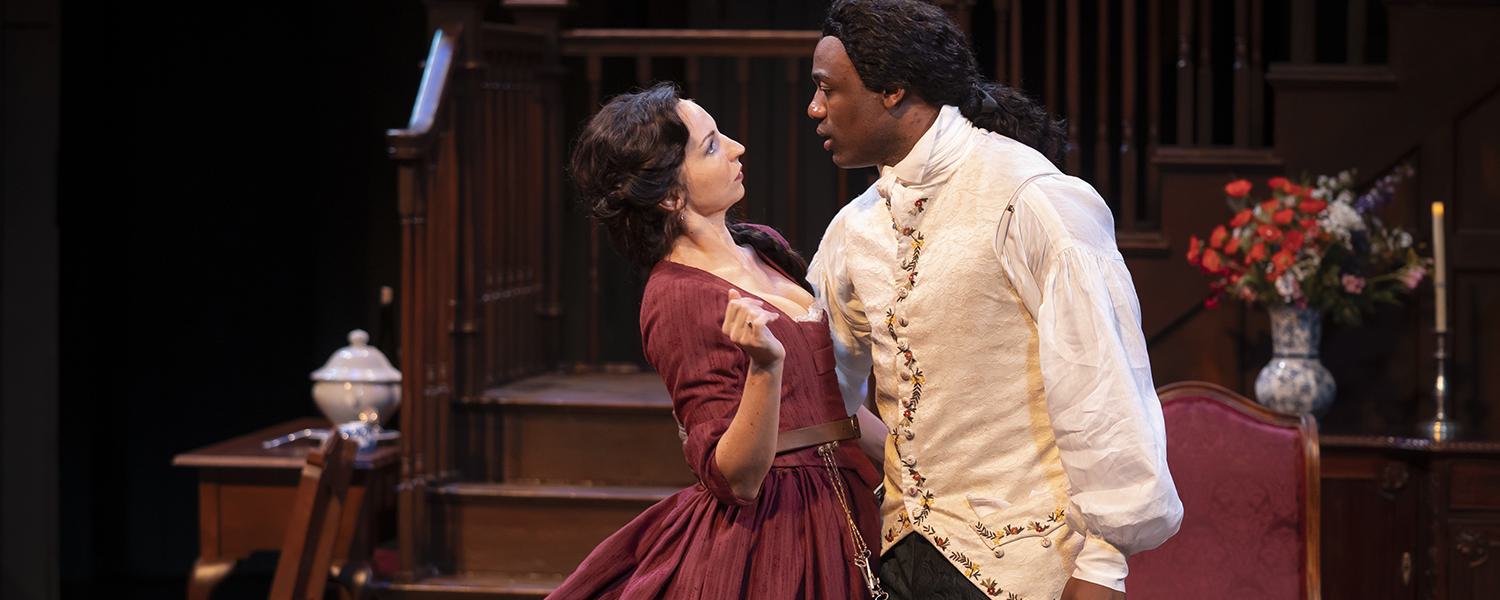Contact Us
American Players Theatre
5950 Golf Course Road
P.O. Box 819
Spring Green, WI 53588
(Map)
Box Office: 608-588-2361
Administration: 608-588-7401
Fax: 608-588-7085
American Players Theatre
5950 Golf Course Road
P.O. Box 819
Spring Green, WI 53588
(Map)
Box Office: 608-588-2361
Administration: 608-588-7401
Fax: 608-588-7085

Company Management is never an easy job, but in the era of podding, it has become all the more complex. Learn more about how to plan a housing bubble so actors can get back within kissing distance in this week's 'The Road Back."
Housing and Podding and Testing (Oh My!)
Nicole Tilford’s spreadsheets are not working.
Since she became APT’s Company Manager in 2015, she has relied on her trusty Excel template to map out housing for the season. Though no two seasons are alike when charged with the care and housing of 140 theater artists, at least the season has always had the same shape. She had come to rely on the pattern of two parts – the first rep of 5 plays, followed by the second rep of 3. The leases always started on March 1 for a move-in date of April 15. Every detail was there in her spreadsheet – which apartments allowed pets, which were accessible, which had shaky internet. Her job is never easy, but it’s familiar. She could depend on a modicum of consistency. Until now.
Marching toward this unprecedented, topsy-turvy season, Nicole admits it’s taken her a while to get her head around the unfamiliarity of it all. This year, the artists will be in pods. Or bubbles, if you’d like. At APT, they’re also referred to as “testing groups” based on who will get their COVID test on different days, and in different frequencies. Whatever name you use, the bubble represents a group of artists who will be working on a specific play together. Because the actors will sometimes rehearse (and will always perform) without masks, and will often be within six feet of each other, the whole group will take precautions that go beyond the CDC guidelines. Everyone in the group, including actors, understudies, director, stage managers and some costume staff, must agree not to interact with anyone outside of their bubble.
To further complicate the puzzle, the nine plays planned for the season have staggered start dates. That means there’s a maximum of two in rehearsal or performance at one time, rather than the usual where five plays begin in May, three begin in July and most artists work in both parts.
Nicole concedes that she’ll have fewer people to house this year – about 100 compared to the usual 150 or so - but there are many more restrictions and complications. In most years, her job involves bringing people together, planning celebrations and making sure Spring Green feels like home. But this year it’s largely about keeping people apart. For instance, people in rehearsal for one show can’t cross over with the people working on another show. Also, people who have direct contact with actors, such as stage managers, need to separate from the people who don’t have direct contact, such as costume stitchers. Furthermore, each work group will stay together. For example, costume shop folks will only live with other people who work in the costume shop.
Another layer to this logistical lasagna is the designers. This year, the costume, scenic, sound and lighting designers will make fewer trips to Spring Green, meeting with people virtually whenever possible.(i.e. costume designers will join all fittings via Zoom). However, when they are in town for technical rehearsals, they will need to have contact with people who have contact with the actors, such as the director and stage manager. During this time, we’ll temporarily and very carefully expand the bubble, before once again shrinking it to include only the people involved in performance (directors and designers are gone but wardrobe staff and other crew members take their place).
As complicated as all of this sounds – and is – it’s just the beginning of Nicole’s work this year. All apartments will need to be cleaned to a higher level to be up to COVID standards, and the housing will turn over more often because artists’ residencies will be much shorter this year. Also, the company management staff will essentially double as a delivery service. Since the artists in the pod agree to avoid public places throughout rehearsal and performance, it falls to Nicole to see to their needs, including shopping and running errands. To handle the extra work, Nicole will increase her staff from one assistant to two. Each assistant will coordinate with one of the show’s pods and will spend some of their time working on other COVID compliance tasks (that’s another complex story to come in a future post).
Despite all the challenges, the new housing spreadsheet is starting to take shape. Artists’ names are starting to be added as they are hired, which Nicole says goes a long way to help her envision how this is all going to work. And despite all the complications, she refuses to let go of her mission – to make sure everyone is comfortable, content and connected. She’s determined the celebrations will continue this season. They just may need to take via Zoom, but the joy of the APT season will abound.
Next week: Q&A! Have a question for The Road Back? Email it to info@americanplayers.org and we’ll answer as many as we can.